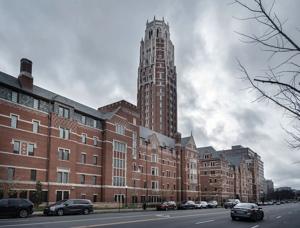Street View is a monthly column taking a close look at development-related issues affecting different neighborhoods throughout the city. Five years ago, Vanderbilt University introduced a new transit program, MoveVU. The program is designed to reduce the university’s impact on Nashville road congestion and promote more sustainable lifestyles for students and faculty.
According to the MoveVU website , the initiative facilitates “a transformation in how the Vanderbilt community commutes to campus — one with less reliance on single occupancy vehicles and less demand for parking — by offering a ‘daily decision’ of travel mode choice.” By Vanderbilt’s metrics, the choices worked. Spurred first by the pandemic and later by hybrid working lifestyles, staff and students started to commute differently, more frequently telecommuting, riding the bus, carpooling, riding bikes and walking.

Between 2019 and 2023, Vanderbilt surveys report that the number of walking commutes rose from 6 percent to 15 percent. Meanwhile, the number of drivers dropped from 79 percent to 48 percent. But to some people living in the neighborhoods near the university, things looked a little different.
David Anthony, a resident of the Hillsboro-Belmont neighborhood, has lived on Fairfax Avenue since 2009. “Fairfax has always been a busy street,” he says. But over the past few years, it has become “blanketed with cars.
” Anthony says the cars seem to belong mostly to Vanderbilt University Me.

























